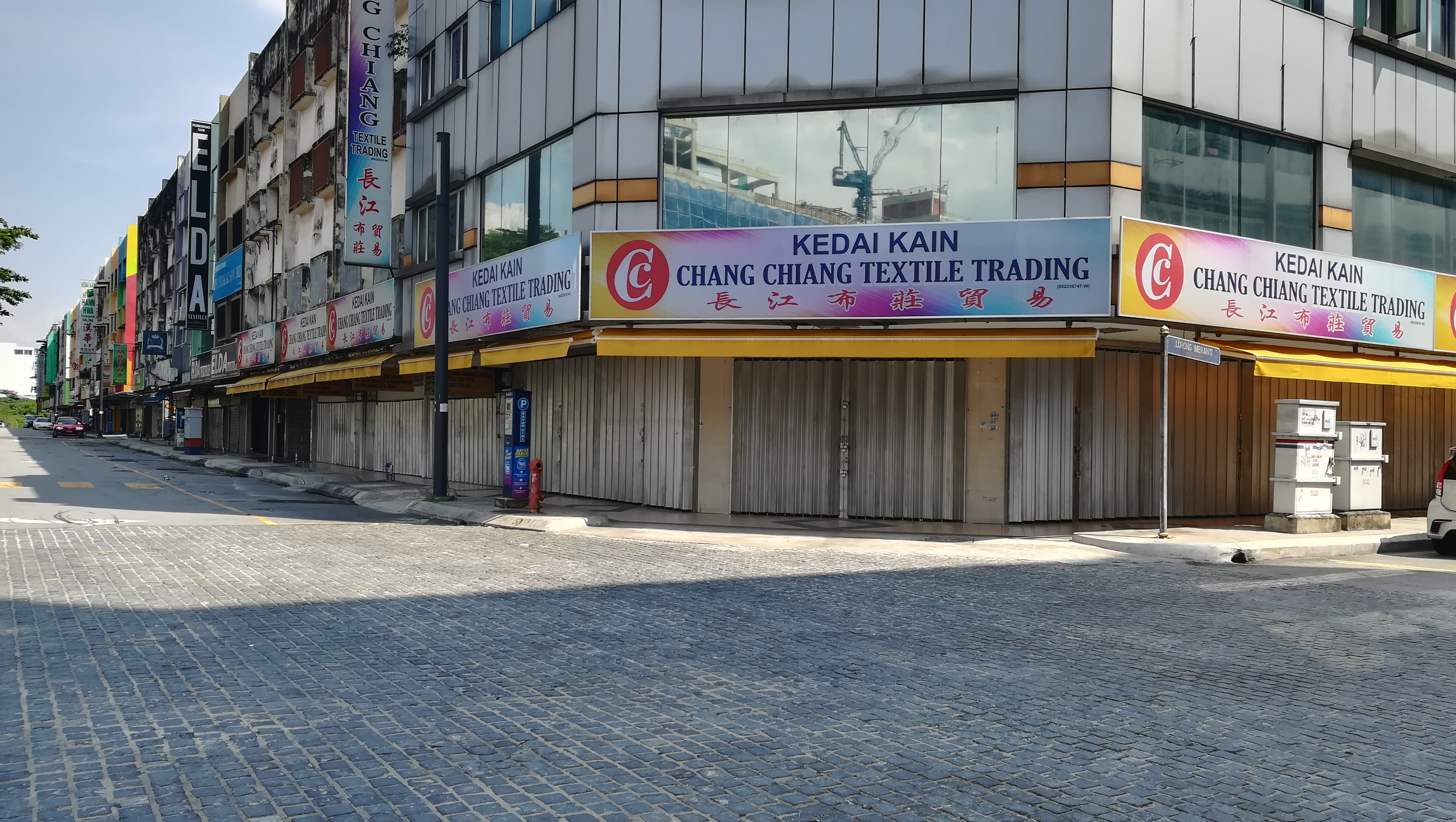
Non-essential businesses and services must close. Rian Maelzer/CGTN
Non-essential businesses and services must close. Rian Maelzer/CGTN
It's nearly a week since Malaysia tightened its so-called Movement Control Order, and three weeks since the restrictions were first imposed after a sharp spike in new coronavirus infections. Police and the army have ramped up the number of roadblocks where they determine whether people have a valid reason for having left their homes.
Malaysians are still permitted to go out to buy food or visit a pharmacy. Some factories and other businesses like post offices and banks are allowed to stay open too. But all non-essential businesses and services are shut, schools closed, public gatherings banned. Foreign visitors can't enter the country. Malaysians can't leave.
Under the tightened rules, people should not not travel more than 10 kilometers from home to buy provisions. Only one person per household is allowed out at a time to do essential chores. Even essential services must close by 8 p.m. and all vehicles must be off the road by 10 p.m.
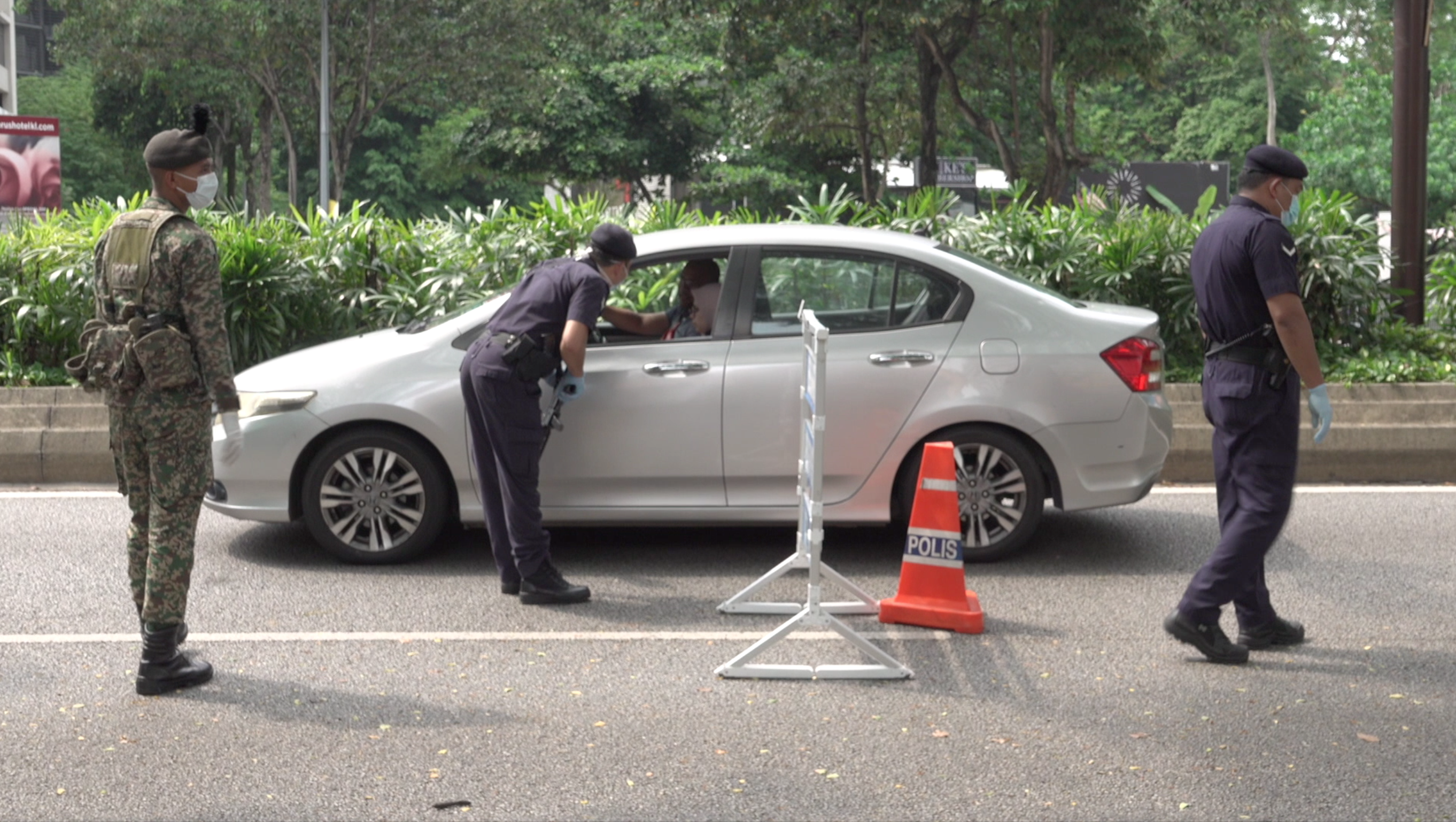
Only one person per household should leave at one time. Rian Maelzer/CGTN
Only one person per household should leave at one time. Rian Maelzer/CGTN
And beware if you leave your home for a reason police consider trivial. Police have detained thousands of people for violating the Movement Control Order, with many brought to court, fined, even jailed, though usually for trying to evade roadblocks or obstructing authorities.
Due to worrying clusters of cases, several villages in two states and as of Tuesday three apartment buildings in Kuala Lumpur, have been put under an Enhanced MCO, with residents completely barred from exiting, and visitors barred from entering, except for the welfare department to deliver food.
So far, Malaysia has avoided the kind of surge in cases that many other countries have seen. In fact, the hope is that the numbers may be plateauing. On Monday, for the first time since the big second wave of infections started about five weeks ago, the number of people cleared of the virus and discharged from hospital exceeded the number of new cases, which has remained within a range of about 130 to 230 daily. The major cluster of cases stemming from a gathering of thousands of members of a Muslim missionary movement reached five generations of infections but has now been contained, the Ministry of Health says.
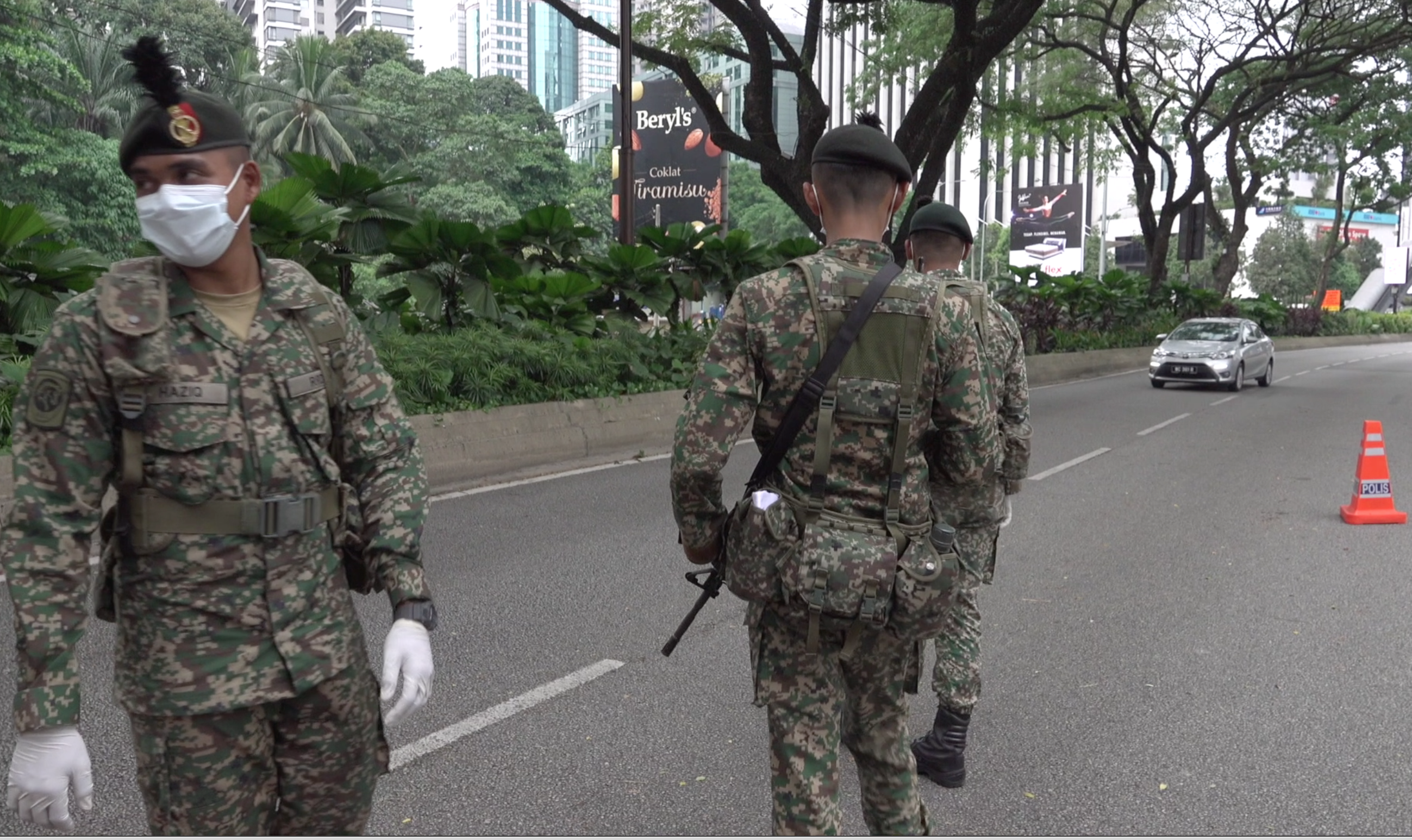
The army help police mount roadblocks. Rian Maelzer/CGTN
The army help police mount roadblocks. Rian Maelzer/CGTN
The director general of the health ministry, Dr. Noor Hisham Abdullah, is leading the battle against the coronavirus, addressing the country each day on live television, updating the numbers, patiently answering media questions – a calm and reassuring presence but one who does not sugar-coat the reality.
In contrast, the new minister of health, appointed less than a month ago, appeared on live TV to explain how he believed drinking warm water would flush the virus into the stomach where stomach acids would kill it. Cue widespread public ridicule. Since that gaffe, he has left the daily briefings to Dr. Noor Hisham, whom newspapers have described as a "national hero" and "the most popular person in the country."
He dismissed such adulation. "It is not about me but what we (citizens) can do as one to fight COVID-19," he said.
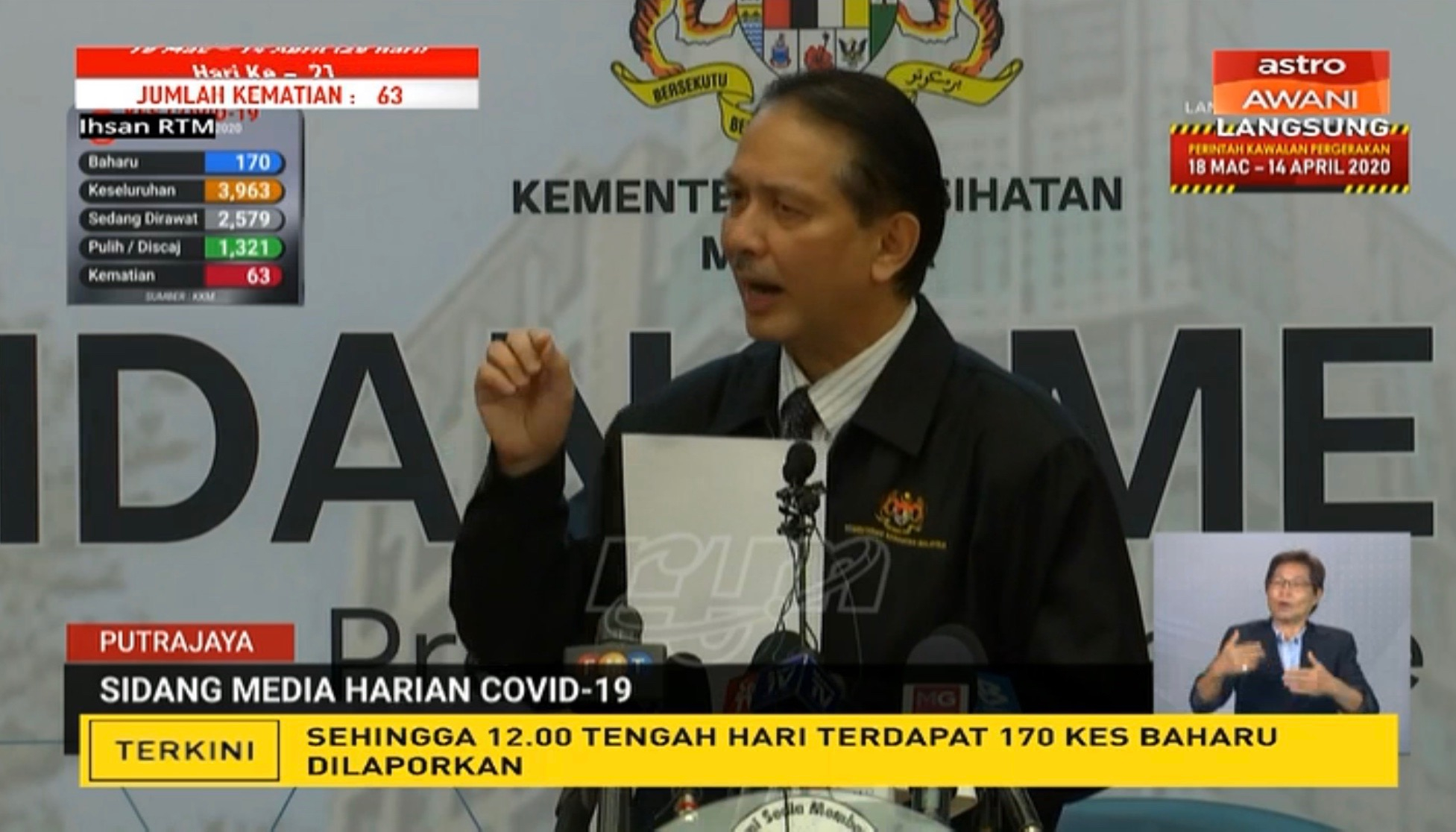
The health ministry director general is widely praised. /A TV screenshot
The health ministry director general is widely praised. /A TV screenshot
Malaysians are generally complying with the Movement Control Order and it appears to be paying off. The Malaysian Institute of Economic Research projected the number of cases between the start of the lockdown and mid-April, and the number of new cases each day have remained well below that projection, though it's too early to talk about having successfully "flattened the curve."
Amid all the anxiety and uncertainty, Prime Minister Muhyiddin Yassin found an opportunity to lighten the mood when announcing a new financial aid package for small and medium-sized businesses on Monday.
"I have seen in social media that some husbands are now beginning to wear their wives' caftans. Some are cycling in their houses. Some have turned my speeches into songs. I hope this is not unusual behaviour or out of character. It is part of your creativity to relieve your boredom being too much at home.”
Malaysians are set to find out on April 10 whether they'll be stuck at home beyond the current end of the restrictions on April 14. Little over a week after that, the Muslim fasting month of Ramadan is due to begin. Two features of that month are special food bazaars that Muslims and non-Muslims alike flock to, to buy their evening food, and special evening prayers at the mosque after the breaking of the fast.
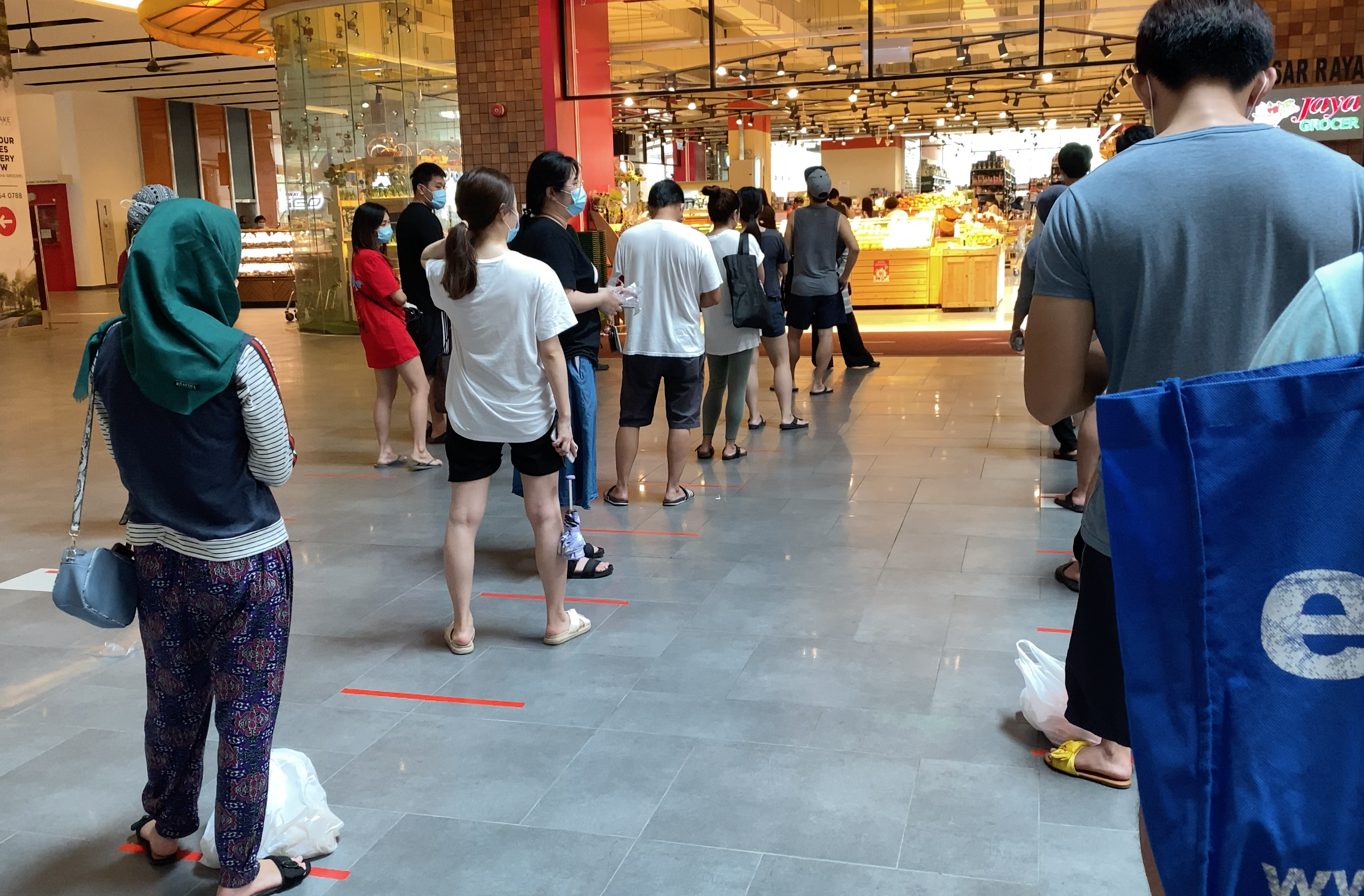
Social distancing may continue beyond mid-April. Rian Maelzer/CGTN
Social distancing may continue beyond mid-April. Rian Maelzer/CGTN
All places of worship in this Muslim-majority country have been closed since the start of the Movement Control Order on March 18. Two states have already said they will prohibit Ramadan bazaars even if the MCO is lifted by the start of the fasting month. The federal government says it's too early to make the call on the bazaars, or the re-opening of mosques and other places of worship.
"Just be patient," says national police chief Abdul Hamid Bador. "Once the situation improves, we may see less rigid restrictions."
"This is the sacrifice we are called to make in order to win this war against the deadly virus," the prime minister said. "Winning this war starts in our homes and with our families."
If people want to increase the chances of a swift return to something like normalcy just stay at home unless you absolutely have to go out, practice social distancing and good hygiene – a message that has become a mantra for people around the world.